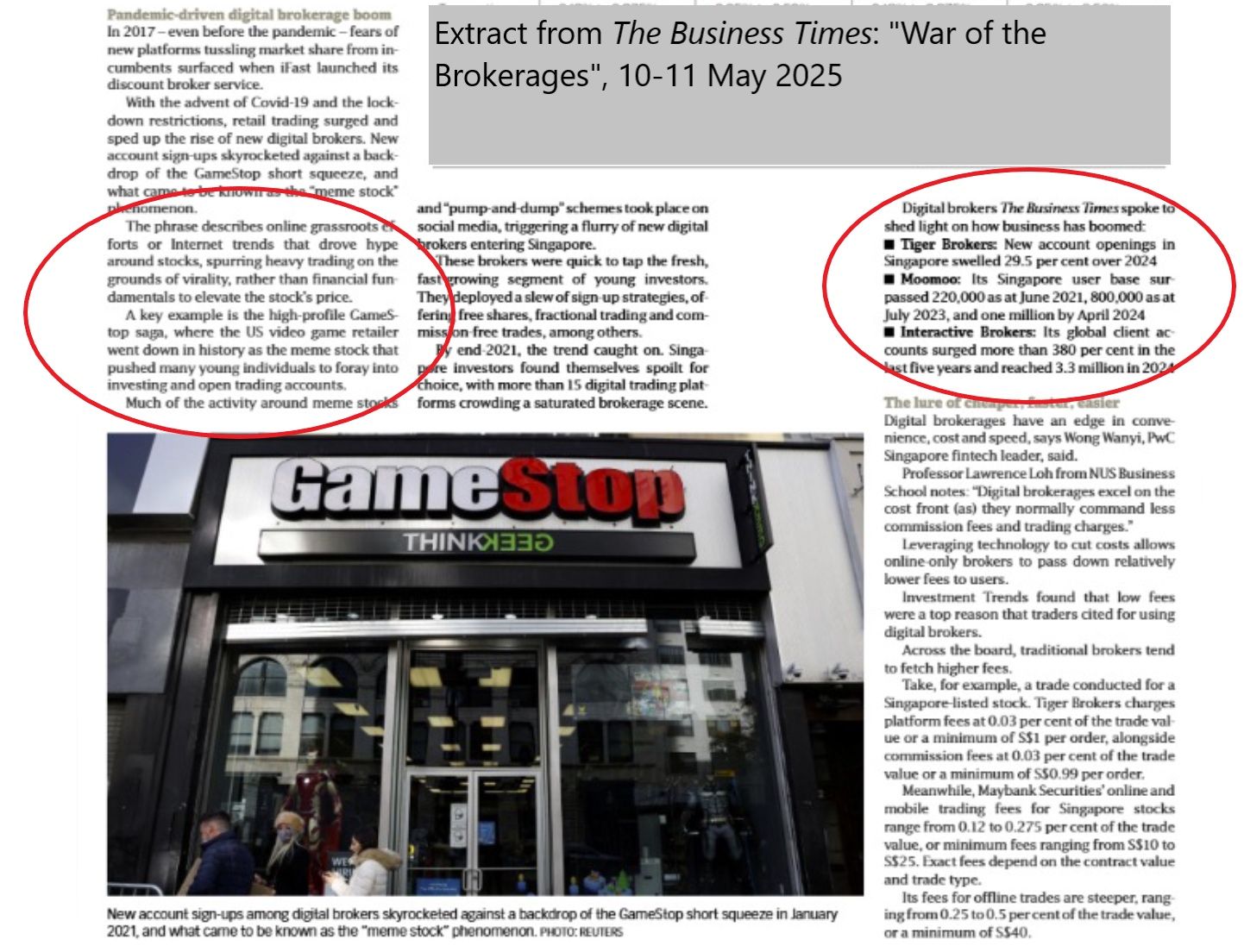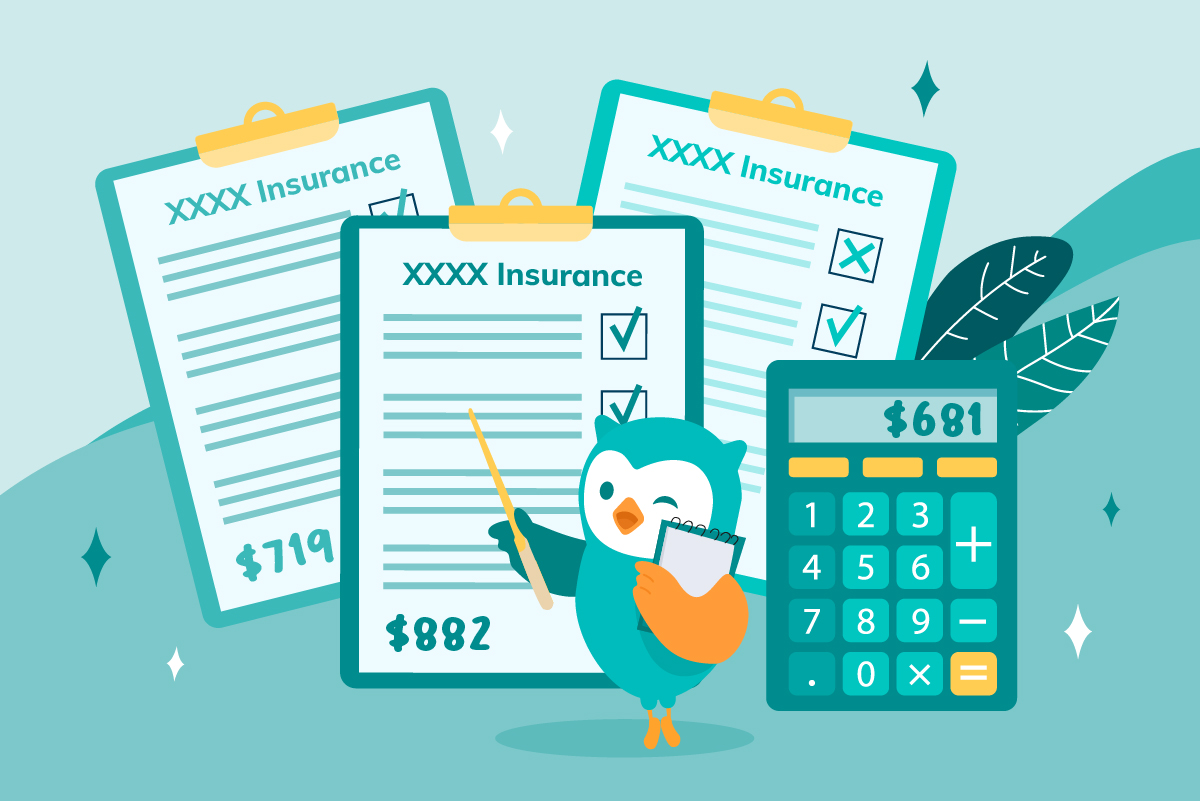
Youth Preparing for Work
Just graduated and starting your career
1. Write down your fixed and variable expenses
Figure out fixed expenses and variable expenses – difficult during the first time, but easier thereafter!
1. Write down your fixed and variable expenses
Figure out fixed expenses and variable expenses – difficult during the first time, but easier thereafter!
Review your various payments and categorize them into fixed and variable expenses.
- Fixed expenses
Recurring costs that remain relatively constant each month. Examples include phone bills, insurance premiums, subscriptions etc.
- Variable expenses
Expenses that fluctuate based on usage or activity levels. These can include shopping, entertainment, and transportation.
To gain a clearer understanding of your spending habits, track your expenses for a month or two. While it may be challenging the first time you do this, it’s largely a one-time effort.
2. Rank your debts in terms of interest rates
Pay down the debt with the highest interest rate.
2. Rank your debts in terms of interest rates
Pay down the debt with the highest interest rate.
Rank your debts based on their interest rates. This will help you decide which ones to focus on paying down first.
- High-interest debt such as credit card balances or personal loans should be a top priority. These can grow quickly if left unpaid.
- Lower-interest debt such as student loans may not need your immediate attention, but it’s still important to continue regular payments.
Whenever possible, use extra money, like from an allowance or a part-time job, to pay down the debt with the highest interest rate. Click here to read our OwlRubrics: Strategy to Reduce Debt.
3. Understand common money mistakes and the Personal Money Equation
Knowing common money mistakes helps you avoid financial setbacks
3. Understand common money mistakes and the Personal Money Equation
Knowing common money mistakes helps you avoid financial setbacks
Learn about common money mistakes to avoid those pitfalls. Be more aware of the long-term consequences of poor financial habits so you can make more informed decisions such as budgeting, saving for emergencies, and investing with caution.
Click below to learn about the 5 common money mistakes that 20-year-olds make.
4. Start saving and paying down debt
Build financial health by prioritizing savings and debt repayment before spending.
4. Start saving and paying down debt
Build financial health by prioritizing savings and debt repayment before spending.
Set a savings, investment, or debt repayment target. If you have a job, saving 15% of gross salary (in addition to CPF contributions) is recommended.
Review your current spending to identify non-essential expenses, like streaming services or dining out, that you can reduce. This approach helps you live within your means and prioritize your future financial goals.
Click here to read our OwlRubrics: Pay Myself First, and More Each Year.
Optional Steps
5. Find out what insurance you have
Understanding the insurance you already have helps you avoid paying for coverage you don’t need and shows you what gaps you might need to fill in the future.
5. Find out what insurance you have
Understanding the insurance you already have helps you avoid paying for coverage you don’t need and shows you what gaps you might need to fill in the future.
Find out from your parents what insurance coverage you already have and get a list of the policies so you know what’s covered.
Before buying any insurance, take the time to learn about it and figure out what you really need. It’s important to understand your options first rather than rushing into decisions.
6. Set up investment account
Start as soon as you can, in low-cost investments suitable for your time horizon and risk appetite
6. Set up investment account
Start as soon as you can, in low-cost investments suitable for your time horizon and risk appetite
Start by learning the basics of investing.
- Understand the different asset types (stocks, bonds, etc.) and how they perform in different market conditions.
- Educate yourself on common investment terms like diversification, risk, and returns.
- Invest in a suitable portfolio. Caution! You need to be financially healthy, with the right time horizon and risk appetite.
- Avoid jumping into investments without fully understanding them. Take time to learn, ask questions, and consult reliable sources or professionals if needed.
- Understand how markets work and how to invest wisely without stress.
Learn continuously:
- Read up reputable financial websites or books to deepen your knowledge.
- Start small to get a feel for how investing works without risking too much money upfront.
- Consider using tools like robo-advisors or investment platforms that guide beginners in creating portfolios based on their goals and risk tolerance.
Click below to visit our investment page, where you can explore our investment solutions and use our risk profiling tool for personalized portfolio recommendations.
7. Learn about CPF
Understanding this will help you see how CPF affects your take-home pay, how funds in each account can be used, and how the contributions build your savings over time.
7. Learn about CPF
Understanding this will help you see how CPF affects your take-home pay, how funds in each account can be used, and how the contributions build your savings over time.
Understand the basics
Begin by reading up on what CPF is and how it works. You can visit the ‘Educational Resources’ section on the CPF website to learn about CPF, financial planning, and more through their articles, videos, and podcasts.
Explore the uses of each account:
- The Ordinary Account (OA) can be used for housing, education, and investments.
- The Special Account (SA) is mainly for retirement and earns a higher interest rate.
- The MediSave Account (MA) helps cover medical expenses and health insurance premiums.
- Know the CPF contribution rate:
Find out how much of your salary goes into CPF and how it’s allocated among the three accounts. Understanding this will help you see how CPF affects your take-home pay and builds your savings over time.
Learn about CPF for retirement:
Explore how CPF supports your retirement with payouts from CPF LIFE, and how you can grow your retirement savings by topping up your Special Account or using other schemes
Click below and get directed to CPF site to learn about the basics of CPF.
8. Learn more about financial planning
Financial literacy is the foundation of good financial health.
8. Learn more about financial planning
Financial literacy is the foundation of good financial health.
Here are some effective ways to enhance your financial literacy and make informed decisions about your finances:
- Attend workshops or webinars:
Many organisations, such as the Institute for Financial Literacy and MoneyOwl, offer free workshops or webinars on personal finance. Click here to find out more about MoneyOwl’s upcoming webinars and events. - Consult professionals:
Consider speaking to a financial planner or adviser to learn about different financial planning methods. Consultations are typically free, and there’s no obligation to buy any products. This can help you gain valuable insights into managing your finances and making informed decisions for your future. - Learn from trusted sources:
Follow reputable Singapore-based financial platforms like Seedly, DollarsAndSense, or government websites like CPF Board and MoneySense.
Click here to find out more about MoneyOwl’s upcoming webinars and events.

Employees
Already in workforce or mid-career
1. Write down your fixed and variable expenses
Figure out fixed expenses and variable expenses – difficult first time, but easier thereafter!
1. Write down your fixed and variable expenses
Figure out fixed expenses and variable expenses – difficult first time, but easier thereafter!
Review your various payments and categorize them into fixed and variable expenses.
- Fixed expenses
Recurring costs that remain relatively constant each month. Examples include phone bills, insurance premiums, subscriptions etc.
- Variable expenses
Expenses that fluctuate based on usage or activity levels. These can include shopping, entertainment, and transportation.
To gain a clearer understanding of your spending habits, track your expenses for a month or two. While it may be challenging the first time you do this, it’s largely a one-time effort.
2. Check on your debt levels
Be financially healthy without too much bad debt, so you can run the financial security marathon
2. Check on your debt levels
Be financially healthy without too much bad debt, so you can run the financial security marathon
Check your Total Debt Servicing Ratio and Non-Mortgage Debt Servicing Ratio
- Total Debt Servicing Ratio (TDSR)
Measures how much of your income goes toward paying off debts.
To calculate your TDSR, add up all your monthly debt payments (like loans and credit cards), divide by your gross monthly income, and multiply by 100 to get a percentage.
For example, if your total monthly debt repayment is $2,000 and your gross income is $5,000, your TDSR would be ($2,000 ÷ $5,000) × 100 = 40%. A TDSR of 55% or lower is generally considered healthy.
- Non-Mortgage Debt Servicing Ratio (NMDSR)
Measures the percentage of your gross monthly income used to pay non-mortgage debts like personal loans and credit card bills.
To calculate your NMDSR, add up all your monthly non-mortgage debt payments, divide by your gross monthly income, and multiply by 100 to get a percentage.
For example, if your monthly debts total $1,000 and your income is $5,000, your NMDSR would be ($1,000 ÷ $5,000) × 100 = 20%. It’s advisable to keep your NMDSR below 20% to ensure your debt is manageable and to maintain financial health.
Click below to read more about clearing your debts.
3. Check on your emergency fund
Have at least 6 months’ worth of expenses/loan payments in cash
3. Check on your emergency fund
Have at least 6 months’ worth of expenses/loan payments in cash
Build up 6 months of expenses as your emergency fund, in case of job loss.
You can also build the mortgage part of the buffer in your CPF Ordinary Account.
Click here to read our OwlRubrics: Building your Emergency Fund.
4. Adjust your Budget and decide how you would “Pay Yourself First”
Saving/investing or reducing debt only from what’s leftover from spending can lead to overspending
4. Adjust your Budget and decide how you would “Pay Yourself First”
Saving/investing or reducing debt only from what’s leftover from spending can lead to overspending
-
- Set a target of how much to save, invest, or pay off debt (“pay yourself first”). 15% of gross salary is recommended as a minimum (not counting CPF contributions).
- Think about how you would adjust your expenses to make that happen. There may be non-essential expenses you can do without. This practice ensures that you live within your means and can prioritise saving and investing for future financial goals.
- Decide where this 15% to Pay Yourself First would go:
- Build your emergency fund, in savings (if you have less than 6 months’ worth of expenses)
- Pay off debt, while building some of your emergency fund; or
- Investing for the longer term through CPF and/or a suitable investment portfolio
5. Implement Budget & “Pay Yourself First” using the 3- Account system.
Automate your finances, start with whatever you can
5. Implement Budget & “Pay Yourself First” using the 3- Account system.
Automate your finances, start with whatever you can
Implement the Budget and “Pay Yourself First” using the 3- Account system. This includes automating the transfers through a monthly standing instruction.
- Do this even if you are not yet ready to invest (under Do Next) – you can keep the 15% in the savings account first for a bigger emergency fund
- Do this even if you can’t do 15% – start with whatever you can
- Increase what you do by 1% every year. It’s like building muscle!
Click here to read our OwlRubrics: Implementing Personal Budget.
Optional Steps
6. Get Essential Insurance
Fail-proof your financial plan: protect against loss of income and high medical bills.
6. Get Essential Insurance
Fail-proof your financial plan: protect against loss of income and high medical bills.
Insurance does not have to be expensive. You need to get the most essential insurance (to protect against loss of income and high medical bills) as early as possible while you are healthy, and when premiums are cheap.
Consider the following essential insurance types:
- Integrated Shield Plan (IP):
Offers a higher coverage than MediShield Life, which is a compulsory scheme that already covers hospitalisation stays in B2/C wards of government hospitals. Consider at least a low-cost “B” class IP. - Critical Illness (CI) Insurance:
Provides a lump sum payout for income replacement in case of a critical illness diagnosis like cancer or heart attack to enable you to recover without working, or for alternative medicines not covered by the IP/MediShield plans. - Life Insurance (covers death/ Total & Permanent Disability):
Ensures a lump sum payout to cover your dependents’ living expenses and repay loans if you pass away, giving your family financial security. - Disability Income Insurance:
Provides monthly payouts (65%-75% of your income) in the event of illness or injury that prevents you from working
Click below to explore our curated Insurance Solutions, featuring packages tailored for various age groups and budgets.
7. Start Investing
Start as soon as you can, in low-cost investments suitable for your time horizon and risk appetite
7. Start Investing
Start as soon as you can, in low-cost investments suitable for your time horizon and risk appetite
- Understand how markets work and how to invest wisely without stress.
- Invest in a suitable portfolio. Caution! You need to be financially healthy and to have the right time horizon and risk appetite.
- This can be part of “Pay Yourself First”: out of the min 15% of gross income we recommend you save/invest in a “regular savings plan”. Increase it by 1% every year.
- Invest 50% of your variable bonus
- You can consider using SRS to invest, which gives you tax savings. There are restrictions on withdrawal.
Click below to visit our investment page, where you can explore our investment solutions and use our risk profiling tool for personalised portfolio recommendations.
8. Top up CPF and do retirement income planning
CPF Special Account is a risk-free way of saving at a high interest rate, for greater financial security.
8. Top up CPF and do retirement income planning
CPF Special Account is a risk-free way of saving at a high interest rate, for greater financial security.
Top up your CPF Special Account (SA) early to the Full Retirement Sum (FRS). The interest rate is attractive and it is virtually risk-free. The power of compounding means you can have a good retirement nest-egg.
You can also enjoy up to S$8,000 in tax relief annually by topping up your CPF SA using cash, up to the prevailing SRS (under 55 years old). If you are 55 years old or older, you can top up your Retirement Account.
If you are just starting out, consider topping up Special Account by 5% of your gross income (on top of normal CPF contributions), and increase it every year towards 10%. If you can’t do 5%, start with what you are comfortable with.
Alternatively, invest this amount (5% -> 10% of gross income) in a portfolio suited to your risk appetite, for retirement.
*You can also top up your MediSave Account to the Basic Healthcare Sum (BHS) but this is more for tax relief. Caution: All top-ups to CPF are a one-way street. You cannot reverse or withdraw top-ups!
Click below to learn more about topping up your CPF.
9. Consider upgrading your skills to stay current
You – and your ability to earn income – are your most important financial asset
9. Consider upgrading your skills to stay current
You – and your ability to earn income – are your most important financial asset
Your ability to generate income is one of your most valuable financial assets, as it directly impacts your financial stability. This means investing in yourself through education, skill development, and professional growth is essential.
Consider using your SkillsFuture credits to upgrade your skillsets or learn new skills.
Myskillsfuture.gov.sg
For NTUC members, you may consider stacking your UTAP credits with SkillsFuture credits to further lower the cost.
Union Training Assistance Programme (UTAP) (ntuc.org.sg)

Freelancers
Flexible and gig work
1. Separate your work-related accounts and your personal accounts
Keeping your finances separate allows you to better manage your personal budget and savings
1. Separate your work-related accounts and your personal accounts
Keeping your finances separate allows you to better manage your personal budget and savings
- Separating work and personal accounts helps you clearly track business income and expenses, making it easier to manage your cash flow.
- A dedicated business account prevents mixing personal and business transactions, streamlining budgeting and tax preparation.
- Doing this can help you gain a clear picture of how your business is performing financially.
2. Estimate your average monthly income
With a clear estimate, you can plan your budget, manage expenses, and set both short-term and long-term financial goals
2. Estimate your average monthly income
With a clear estimate, you can plan your budget, manage expenses, and set both short-term and long-term financial goals
Calculate your annual income:
- Start by adding up all sources of income you expect to receive in a year, including freelance jobs, contracts, and any side income.
- Take your total annual income and divide it by 12 to get an estimate of your average monthly income. This gives you a clear idea of what you can expect to earn each month.
Estimating your average monthly income helps you manage your finances better, especially if your income fluctuates. It allows you to allocate funds for essential expenses, savings, and future investments, ensuring you stay on track even during months when income is lower than expected.
3. Write down your fixed and variable expenses
Figure out fixed expenses and variable expenses – difficult first time, but easier thereafter!
3. Write down your fixed and variable expenses
Figure out fixed expenses and variable expenses – difficult first time, but easier thereafter!
Look up the various payments you need to make and separate them into fixed and variable.
- Fixed expenses are recurring costs that are generally constant every month. Examples include housing loan payments or rental, insurance premiums, utilities, and other loan repayments.
- Variable expenses are costs that fluctuate based on usage or activity levels. These include groceries, entertainment, and transportation.
Track your expenses for a month or two to get a clearer picture of where your money is going. It’s difficult the first time you do this, but the effort is mainly one-off.
Click below to download budgeting spreadsheet
Repeat this once a year or when there is a major change in your finances.
4. Check your debt ratios against your average monthly income
Be financially healthy without too much bad debt so you can run the financial security marathon
4. Check your debt ratios against your average monthly income
Be financially healthy without too much bad debt so you can run the financial security marathon
Your total debt payments should not exceed 30-35% of your monthly income. This includes loans, credit card balances, or other debts.
By maintaining a healthy debt-to-income ratio, you ensure that you’re not overburdened by debt and still have room to save, invest, and cover other expenses comfortably.
Click here to read our OwlRubrics Debt Ratios.
5. Check your emergency fund
Have at least 12 months’ worth of expenses/loan payments in cash
5. Check your emergency fund
Have at least 12 months’ worth of expenses/loan payments in cash
Make sure you have an emergency fund in place to cover unexpected expenses, like medical bills or lull periods. Aim to build up savings that can cover at least 12 months of your living expenses.
Having this amount on hand allows you to handle any unforeseen events without turning to debt.
Click here to read our OwlRubrics Building your Emergency Fund.
6. Adjust your Budget and decide how you would “Pay Yourself First”
Saving/investing or reducing debt only from what’s leftover from spending can lead to overspending
6. Adjust your Budget and decide how you would “Pay Yourself First”
Saving/investing or reducing debt only from what’s leftover from spending can lead to overspending
- Set a target of how much to save, invest, or pay off debt (“pay yourself first”). 15% of gross salary is recommended as a minimum (not counting CPF contributions).
- Think about how you would adjust your expenses to make that happen. There may be non-essential expenses you can do without. This practice ensures that you live within your means and can prioritise saving and investing for future financial goals.
- Decide where this 15% to Pay Yourself First would go:
-
- Build your emergency fund, in savings (if you have less than 6 months’ worth of expenses)
-
- Pay off debt, while building some of your emergency fund; or
- Investing for the longer term through CPF and/or a suitable investment portfolio
-
Click here to read our OwlRubrics: Pay Myself First, and More Each Year.
7. Implement Budget & “Pay Yourself First” using the 3- Account system.
Automate your finances, start with whatever you can
7. Implement Budget & “Pay Yourself First” using the 3- Account system.
Automate your finances, start with whatever you can
Implement the Budget and “Pay Yourself First” using the 3- Account system. This includes automating the transfers through a monthly standing instruction.
- Do this even if you are not yet ready to invest (under Do Next) – you can keep the 15% in the savings account first for a bigger emergency fund
- Do this even if you can’t do 15% – start with whatever you can
- Increase what you do by 1% every year. It’s like building muscle!
Click here to read our OwlRubrics: Implementing Personal Budget.
Optional Steps
8. Get essential insurance
Fail-proof your financial plan: Protect against high medical bills and loss of income.
8. Get essential insurance
Fail-proof your financial plan: Protect against high medical bills and loss of income.
Protection for large medical expenses
a. Integrated Shield Plan (IP): Consider a Public Hospital ‘B1’ ward IP on top of MediShield Life to cover a significant portion of hospitalisation expenses incurred before, during and post-hospitalisation.
Protection from loss of income
b. Occupational Disability Insurance: This insurance is vital for freelancers in high-risk jobs, as it provides income protection if you’re unable to work due to illness or injury. It covers a wide range of situations where you can’t perform your usual job duties.
c. Personal Accident Plan: A personal accident plan is essential if you work in a high-risk job, as it provides financial protection against accidents. Since no work means no income for self-employed individuals, this plan helps you manage the financial burden that comes with injuries, allowing you to focus on recovery without worrying about lost earnings.
Click below to read more about the importance of reviewing your insurance annually.
9. Contribute to your CPF
Maximise the compounding effect of CPF’s higher interest rates by contributing early.
9. Contribute to your CPF
Maximise the compounding effect of CPF’s higher interest rates by contributing early.
Why Start Early?
- Compounding effect The sooner you start, the more your savings can grow. CPF’s higher interest rates of at least 2.5% allow your money to compound, resulting in much larger retirement savings over the years.
- Reduce financial stress later Regular contributions from an early age reduce the pressure of having to make large, catch-up contributions later in life when your expenses might be higher. Early planning ensures you stay financially secure and avoid stress as you approach retirement.
Example: 30-year-old freelancer earning $4,000/month
Typically, employees receive 37% of their salary in their CPF accounts.
Besides your mandatory MediSave contributions as a self-employed, you could top up another $240 each month to your SA. Small regular contributions can build up to a substantial retirement fund over time due to risk-free compounding interest rate of up to 5% p.a..
Click below to learn more about topping up your CPF.
If you are a platform worker born on 1 January 1995 or later, your platform operator will help you make monthly contributions into your Ordinary, Special and MediSave Accounts to help you build up savings for housing and retirement. The contribution rate will increase gradually to eventually align with employees. This also means your total earnings will increase due to additional contributions from your platform operator.
If you are a platform worker born before 1 January 1995, you can also opt in for increased CPF contributions to grow your Ordinary and Special Account savings. (Can consider whether to redraw the attached infographic from CPF website as example).
To help you cope with the drop in take-home pay due, the Platform Workers CPF Transition Support scheme provides monthly cash support to lower-income platform workers to offset part of the year-on-year increase in the platform worker’s share of CPF contributions.
Click here to learn more about CPF contributions for platform workers
10. Learn about investing
Maximise Your CPF Contributions Before Exploring Market Investments
10. Learn about investing
Maximise Your CPF Contributions Before Exploring Market Investments
Prioritise contributing to your CPF account
- CPF offers a risk-free way to grow your money with guaranteed returns. Maximise this benefit before venturing into investments that come with market risk.
- Understand the different asset types (stocks, bonds, etc.) and how they perform in different market conditions.
- Educate yourself on common investment terms like diversification, risk, and returns.
- Invest in a suitable portfolio. Caution! You need to be financially healthy, with the right time horizon and risk appetite.
- Avoid jumping into investments without fully understanding them. Take time to learn, ask questions, and consult reliable sources or professionals if needed.
- Understand how markets work and how to invest wisely without stress.
- Read up reputable financial websites or books to deepen your knowledge.
- Start small to get a feel for how investing works without risking too much money upfront.
- Consider using tools like robo-advisors or investment platforms that guide beginners in creating portfolios based on their goals and risk tolerance.
11. Find ways to increase your income
As earnings can be unpredictable and vary month by month, finding ways to boost your income can help to build financial stability.
11. Find ways to increase your income
As earnings can be unpredictable and vary month by month, finding ways to boost your income can help to build financial stability.
Learn new skills or take up side hustles to diversify your income sources.
Incorporate your business
- Understand the process and responsibilities of incorporating your own business, including compliance, taxes, and financial management.
- While freelancing offers flexibility, having your own business can provide long-term growth opportunities, help with credibility and provide access to certain clients or markets.
- Explore the benefits of stable employment, such as regular income, opportunities for career progression, and access to employer benefits like healthcare and CPF contributions.




